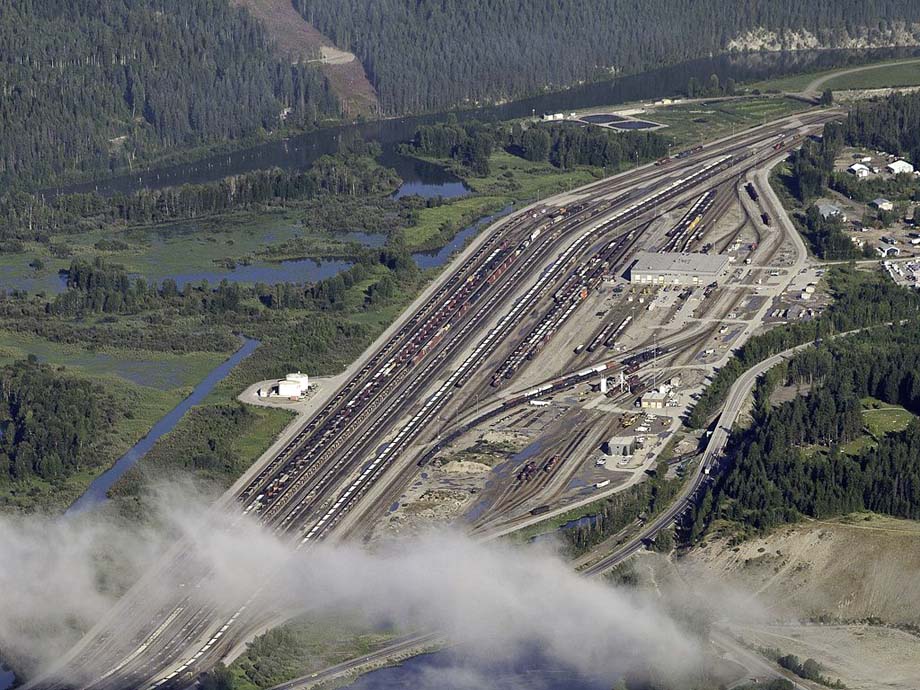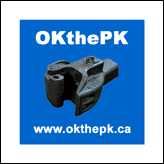
Golden British Columbia - Golden has some of the poorest air quality in the province.
Exposure to air pollution is linked to increased risks of premature mortality, hospital admissions for heart or lung
causes, bronchitis, and asthma.
These impacts disproportionately affect infants, children, and older adults with preexisting heart or lung
diseases.
There are many contributing factors to the poor air quality in town, wood stoves, forest fires, idling trucks on the
highways, slash burning, road dust, and industry.
A lot of attention has been dedicated to reducing air pollution caused by home heating by promoting clean burning
practices and less polluting heating appliances.
This is partly because it is something we have control over, unlike wildfires for instance, which can be mitigated to
an extent, but are largely out of our control.
While the residents of Golden bear the responsibility of clean burning and the cost of home heating retrofits, what are
the responsibilities of organisations like Canadian Pacific Kansas City (CPKC)?
Can they be doing more to reduce air pollution in Golden?
Locomotives are legally not allowed to idle for more than 30 minutes except in special circumstances.
For instance when it is below 5 degrees C the train engines must remain on so they don't freeze.
However trains from CPKC are often observed idling for long periods of time even when temperatures are above 5 degrees
C.
The rail yard in Golden is located in a valley bottom close to residential areas with poor ventilation, residents in
the area can often smell the diesel exhaust throughout their neighbourhoods.
Rail companies are required to have an anti-idling policy, however after numerous requests to CPKC they still have not
shared any details of such policy.
We are therefore unable to evaluate if the policy is adequate, if it is being followed, or even whether the policy
exists.
CPKC is also obliged to keep records of their emissions testing and anti-idling policies and file them with Transport
Canada (TC), the regulator of railroad emissions in the province.
TC is responsible for addressing complaints and inquiries from the public on the issue.
However, they were not able to provide any information regarding CPKC's anti-idling policy, emissions testing, or
efforts to reduce air pollutants.
They simply redirected us back to CP.
The Locomotive Emissions Regulations, introduced in 2017 by the federal government, was created with the intent to
limit harmful emissions from locomotives through emissions standards and idling restrictions.
This legislation appears to have had little effect on reducing emissions and air pollution from locomotives in
Golden.
Unfortunately, there are some obvious flaws in the Locomotive Emissions Regulations.
For instance, only new locomotives are required to adhere to the new regulations, if CPKC uses older locomotives, they
do not have to be compliant with the new laws.
If you observe excessive idling from CPKC, we recommend that you report the occurrence to Transport Canada as
follows:
Document the details of the occurrence, including details on railway company name, date, time(s), description of
issue, locomotive identification number (typically a 4-digit number, to be obtained in a safe manner), and any other
relevant information (e.g., outdoor air temperature);
Advise the railway company of the occurrence and provide the details (to contact CP, email: community_connect@cpr.ca
or call: 1-800-766-7912);
As required, engage Transport Canada's Rail Safety Directorate (to contact Rail Safety, email: railsafety@tc.gc.ca or
call toll-free: 1-844-897-7245).
It's hard to believe there has been next to no progress on this issue since the Locomotive Emissions Regulations came
out in 2017.
It would be great for the public to be able to see the results of emissions testing on equipment being used by CPKC in
Golden, an explanation of anti-idling measures being implemented, and how this is improving over time.
Objectives and timelines should be in place so progress can be measured and success can be definitively
evaluated.
Submitted by the Air Quality Committee Wildsight Golden.
Author unknown.
(likely no image with original article)
(usually because it's been seen before)
(the image is altered or fake)
provisions in Section 29 of the
Canadian Copyright Modernization Act.

